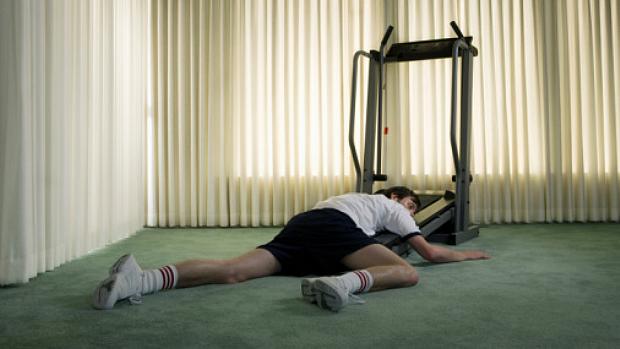Find out how prolonged Covid-19 affects the ability to exercise
3 min read
Research published in JAMA Network Open found that during moderate physical activity, patients with long-term Covid – a term colloquially used to describe persistent symptoms of SARS-CoV-2 infection – reduced their ability to exercise due to their irregularity. breathing and tiredness;
In previous studies, prolonged Covid-19 has also been associated with headaches and mental confusion. Now, in this new review, he points out another flaw: the difficulty of getting back into exercise.
The analysis included men and women, ages 39 to 56, among hospitalized and non-hospitalized Covid-19 patients. The results of participants who recovered from the virus without long-term effects were compared to a group of similar numbers who had consistent symptoms.
In this way, the researchers confirmed that during moderate exercise, the group with prolonged Covid reduced muscle oxygen extraction – meaning they tire more quickly – as well as erratic breathing patterns, making activity more difficult.
Although lack of conditioning was considered a possible factor, these tests were performed three to six months after hospitalization for the disease. “Even if the participants were sedentary, that wouldn’t explain everything we found. How can someone be sedentary for months and still have better exercise ability than the study participants?” asked Matt Dorsteinfeld, a cardiologist and clinical researcher in the Department of Medicine at the University of California, San Francisco. Francisco, US, and author of Research Book. “In addition, many of the other patterns that negatively affected exercise performance were unrelated to deconditioning.”
The researchers further noted that changes in muscle oxygenation and respiratory distress were likely related to changes in the autonomic system – as if the “fight or flight” response had been somehow reset after injury.
“Because most studies only involve one exercise test per participant, it is not known if this effect is permanent,” Dorstenfeld said. “For example, one study that did repeat testing found no improvement, and another found a slight improvement but still significantly lower exercise capacity compared to people without Covid.”
He added that one study included individuals with such fitness limitations more than a year after hospitalization with Covid-19, showing that such effects can destroy the ability to exercise long after recovery from the disease itself.
The mechanism by which this might happen wasn’t clear, but Dorsteinfeld said the researchers were surprised to find that lung and heart restrictions on exercise are not common, although the results may indicate that this is the case. “More long-term studies with more participants will be needed to determine causes, along with developing rehabilitation therapies that may be beneficial,” he added.
According to the National Center for Health Statistics, nearly 20 million adults in the United States have long-term symptoms of Covid, which makes it a major problem. And while more work needs to be done to determine the causes of reduced ability to exercise, Durstenfeld warned that it can happen to anyone who has Covid-19 and still has symptoms – from those who have been hospitalized to those with mild symptoms.
“Just being motivated to push harder doesn’t help,” he said, as the body prepares for fatigue more quickly. “That means, for now, the advice is to go slow and increase your exercise very gradually, without forcing it.”

“Entrepreneur. Music enthusiast. Lifelong communicator. General coffee aficionado. Internet scholar.”

:strip_icc()/s04.video.glbimg.com/x720/11792055.jpg)

:strip_icc()/s03.video.glbimg.com/x720/11786998.jpg)



